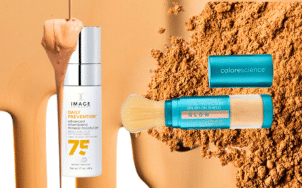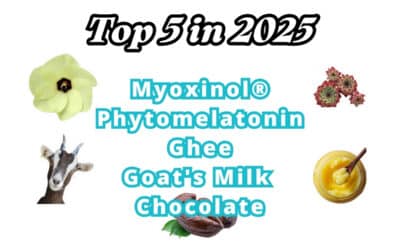A must have anti-aging ingredient
Skincare is not just about looking good, it’s about overall health and well-being. Choosing the right products for your skin can make a significant difference in the way your skin looks and feels. One ingredient that is often praised in skincare is Vitamin C. Not all vitamin C is created equal, however, understanding the different types can help you select a product that will deliver optimal results.
There are many forms of Vitamin C used in skincare products, each carrying individual characteristics. The most widely used are:
- Ascorbic Acid
- Sodium Ascorbyl Phosphate
- Magnesium Ascorbyl Phosphate
- Ethyl Ascorbic Acid
Each form works differently on the skin, providing unique benefits. By understanding these differences, you’ll be better equipped to choose a product that suits your specific needs and skin type.
Ascorbic acid
Recognized as the purest and most robust form of vitamin C available in skincare. This highly effective molecule has earned its reputation as the best vitamin C for skin due to its direct action and multiple benefits. Considered the most effective form with concentrations typically between 10%-20%.
- Diminishes dark spots
- It neutralizes free radicals
- Stimulates collagen synthesis
- Offers soothing properties
Sodium Ascorbyl Phosphate
Once applied to the skin, it is converted into ascorbic acid. This conversion process allows the skin to receive the core benefits of vitamin C. However, since this conversion happens over time, it provides a more gradual release of vitamin C to the skin, which minimizes potential irritation.
- Resistant to oxidation, which prolongs its shelf life and effectiveness
- Lower acidity reduces the risk of irritation
- Especially beneficial for acne-prone or oily skin
- Resistant to light and air
Magnesium Ascorbyl Phosphate
One of the standout features of MAP is its ability to hydrate the skin. By increasing the skin’s moisture levels, it can temporarily create a plumping effect. A popular choice among skincare enthusiasts who want to enjoy the benefits of Vitamin C without the potential irritation. It’s a water-soluble version of Vitamin C that may not be as potent as Ascorbic Acid.
- Doesn’t increase the risk of over-exfoliation or make the skin more sensitive to sunlight.
- Hydrates the skin by increasing moisture level
- Reduces hyperpigmentation by inhibiting melanin production
Ethyl Ascorbic Acid
Unlike traditional Vitamin C, it offers higher stability, maintaining potency over time. It easily integrates into aqueous formulations for versatile use. Drawback is that it lacks the potency to be as effective as other forms of vitamin C.
- Effectively reduces dark spots over a long period of time
- Antioxidant properties protect skin cells from oxidative stress and environmental damage
- Promotes Collagen production
Benefits of Using Vitamin C for Skin Care
When it comes to skincare, vitamin C is a superstar ingredient. Its benefits extend beyond its well-known antioxidant properties, playing a crucial role in maintaining the health and vibrancy of the skin.
- Antioxidant Power
Vitamin C is renowned for its potent antioxidant properties. Antioxidants neutralize harmful free radicals produced by exposure to environmental stressors such as UV radiation and pollution. By scavenging these free radicals, vitamin C shields the skin from oxidative damage, potential inflammation, and premature aging.
- Collagen Synthesis
Collagen, a vital protein that gives skin its firmness and elasticity, owes much to vitamin C. This nutrient is essential for collagen synthesis, helping to maintain the skin’s structural integrity. Regular application of vitamin C-infused skincare products can help promote collagen production, leading to smoother, plumper, and more youthful-looking skin.
- Reducing Pigmentation
Vitamin C plays an instrumental role in combating hyperpigmentation – dark patches or spots on the skin caused by excess melanin production. It inhibits the enzyme tyrosinase responsible for melanin synthesis, thereby reducing pigmentation issues such as age spots and melasma.
- Environmental Damage Protection
Vitamin C’s antioxidant properties extend to offering protection against environmental damage. By neutralizing harmful free radicals from UV rays and pollution, it helps prevent damage to skin cells. This protective function can reduce the risk of sunburn and may even decrease long-term damage leading to skin cancer.
Incorporating vitamin C into your skincare routine can bring about significant benefits – radiant complexion, improved texture, and enhanced resilience against environmental stressors. In the following sections, we’re going to look at how you can enhance these benefits by combining vitamin C with other antioxidants and finding the right concentration for your skin type.
Finding the Right Vitamin C Concentration for Your Skin
The potency of a vitamin C skincare product is directly linked to its concentration. This means getting the concentration right is crucial for reaping the maximum benefits while ensuring it doesn’t irritate or damage your skin.
Significance of Formulation Strength
The strength of vitamin C formulation plays a pivotal role in:
- Effectiveness: Higher concentrations can provide more pronounced results.
- Tolerance: Each skin type has a different tolerance level to acidity and concentration.
- Stability: Stronger does not always mean better, as high concentrations can lead to instability and quicker oxidation.
TIP: When choosing a product, opt for serums that list ascorbic acid high up on their ingredient lists.
Tips for Incorporating Vitamin C into Your Skincare Routine.
- Patch Test: Before adding a new vitamin C product to your routine test it on a small area of skin first. Apply a small amount on your inner arm and wait 24-48 hours to see if you have any negative reactions.
- Start Slowly: If the patch test goes well, start by using the product every other day instead of every day. This gives your skin time to adjust without getting irritated.
- Pay Attention to Your Skin: Keep an eye on how your skin looks and feels after using the product. If you notice any redness or irritation, try using a lower concentration of vitamin C or a different form that might be less harsh on your skin.
- In the Morning: The best time to use vitamin C serum is in the morning as part of your daily skincare routine. Its antioxidant properties help protect your skin from pollution and UV rays throughout the day.
- Follow with Sunscreen: Using sunscreen with vitamin C can give you even more protection against sun damage.
- Keep Them Away from Light and Air: Store your vitamin C serums and creams in dark, cool places where they won’t be exposed to the elements.
Enhancing the Effectiveness of Vitamin C with Other Antioxidants
By integrating ascorbic acid into your skincare routine thoughtfully, you can leverage its full range of benefits while minimizing any potential drawbacks. Selecting well-formulated products and paying attention to how your skin responds will ensure you get the most out of this potent ingredient.
When it comes to skincare, layering your antioxidants can significantly boost their efficiency. This concept also applies to Vitamin C. Pairing it with other antioxidant ingredients can create a powerful combination that delivers even better results for your skin.
Synergistic Effects of Antioxidants
Two or more antioxidants working together can have a stronger impact compared to using them separately. This effect is known as synergism. For instance, when Vitamin C is combined with other antioxidants, it has been found to improve its overall performance and increase its skin-protective properties.
Complementary Antioxidants
While there are many antioxidants available, certain ones work particularly well with Vitamin C. Our top 2 picks are:
- Vitamin E:Known scientifically as Tocopherol, Vitamin E is an effective antioxidant that helps protect the skin from environmental damage. When used alongside Vitamin C, these two vitamins can enhance each other’s antioxidant capacity. The result? A heightened defense against pollution and sun damage.
- Ferulic Acid:This plant-based antioxidant stabilizes Vitamin C and boosts its photoprotection properties. Studies have shown that Ferulic Acid can double the photo-protection offered by Vitamins C and E.
Most Importantly An informed decision is a powerful decision. The best vitamin C for your skin is the one that complements your skincare needs and seamlessly fits into your routine while delivering noticeable results. Embrace the antioxidant power of Vitamin C, tailor it with other beneficial antioxidants and rejoice as your skin reveals its true potential.
FAQs (Frequently Asked Questions)
What is the purest and most potent form of Vitamin C for skin? Ascorbic Acid is considered the purest and most potent form of Vitamin C for skin. It offers numerous benefits, including antioxidant properties, collagen synthesis, and reduction of pigmentation. However, it is important to consider potential irritation and oxidation when using products with this form of Vitamin C.
What are the characteristics and benefits of Sodium Ascorbyl Phosphate? Sodium Ascorbyl Phosphate is a stable form of Vitamin C that can be converted to deliver the benefits of Ascorbic Acid to the skin. It is suitable for various skin types and offers antioxidant properties as well as collagen synthesis support.
What are the hydrating and anti-inflammatory effects of Magnesium Ascorbyl Phosphate? Magnesium Ascorbyl Phosphate is known for its hydrating properties and anti-inflammatory effects on the skin. It is also effective in brightening skin tone and reducing hyperpigmentation.
Are there other forms of Vitamin C used in skincare products? Yes, besides Ascorbic Acid, there are other forms of Vitamin C used in skincare products, including Sodium Ascorbate, Calcium Ascorbate, and Ascorbyl Palmitate. Each form may offer unique benefits for different skincare needs.
How can Vitamin C be enhanced with other antioxidants in a skincare routine? Combining Vitamin C with other antioxidants in a skincare routine can lead to synergistic effects. Specific antioxidant ingredients like Vitamins E and Ferulic Acid can complement and stabilize Vitamin C, enhancing its overall effectiveness.
What should be considered when choosing the right Vitamin C concentration for your skin? The formulation strength of Vitamin C products plays a significant role in maximizing benefits without overwhelming the skin barrier. It’s important to consider the optimal concentration for different types of Vitamin C products based on individual skincare needs.
What are some tips for incorporating Vitamin C into a skincare routine?
When incorporating Vitamin C into a skincare routine, it’s recommended to patch test and introduce it gradually to avoid sensitivity issues. Additionally, proper storage practices should be followed to maintain product potency.
If you need more help picking quality, affordable and effective products for your routine, our Estheticians would be happy to give you a complimentary skin analysis and answer all of your skincare questions.




